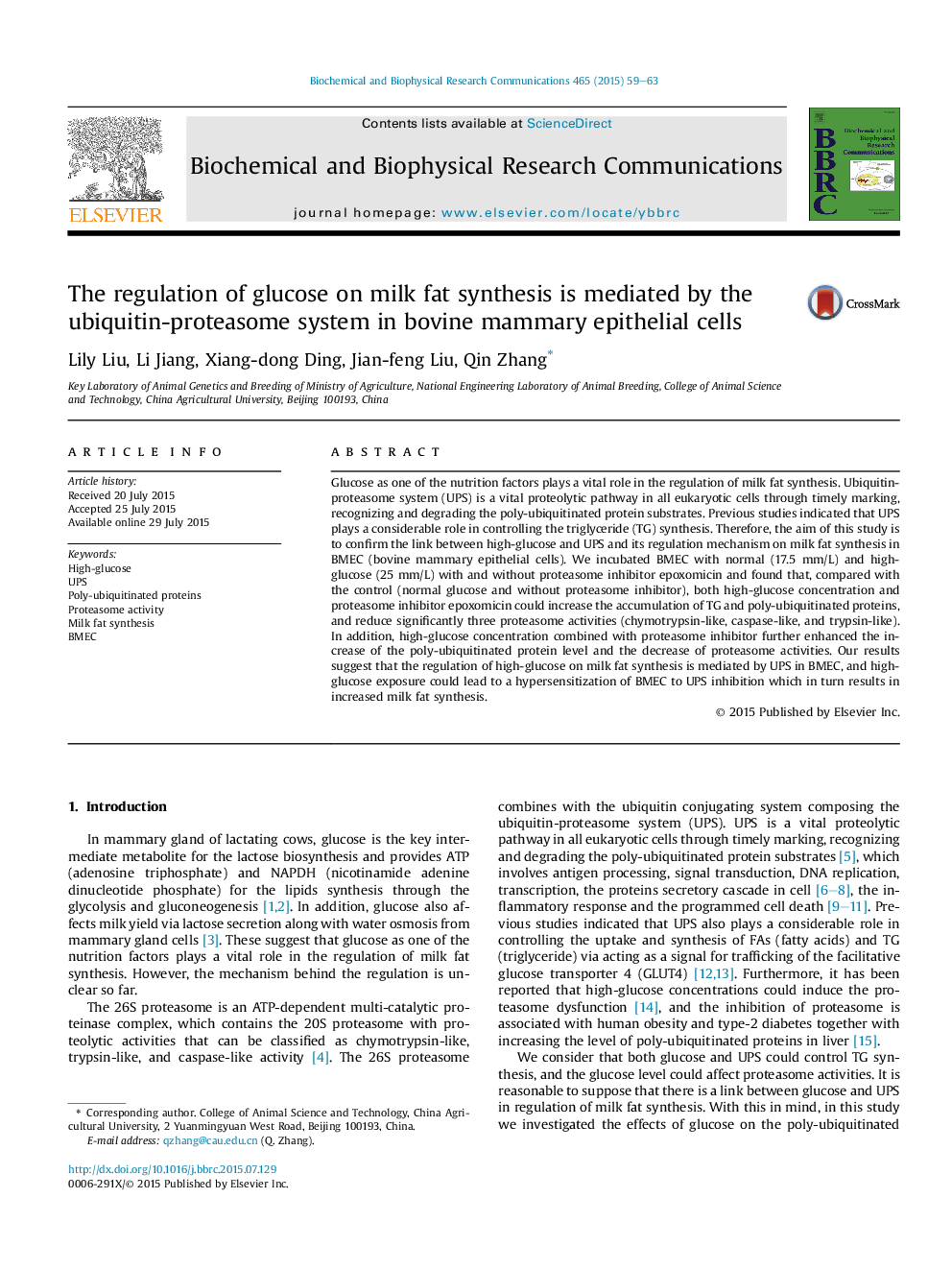| Article ID | Journal | Published Year | Pages | File Type |
|---|---|---|---|---|
| 1928118 | Biochemical and Biophysical Research Communications | 2015 | 5 Pages |
Abstract
Glucose as one of the nutrition factors plays a vital role in the regulation of milk fat synthesis. Ubiquitin-proteasome system (UPS) is a vital proteolytic pathway in all eukaryotic cells through timely marking, recognizing and degrading the poly-ubiquitinated protein substrates. Previous studies indicated that UPS plays a considerable role in controlling the triglyceride (TG) synthesis. Therefore, the aim of this study is to confirm the link between high-glucose and UPS and its regulation mechanism on milk fat synthesis in BMEC (bovine mammary epithelial cells). We incubated BMEC with normal (17.5Â mm/L) and high-glucose (25Â mm/L) with and without proteasome inhibitor epoxomicin and found that, compared with the control (normal glucose and without proteasome inhibitor), both high-glucose concentration and proteasome inhibitor epoxomicin could increase the accumulation of TG and poly-ubiquitinated proteins, and reduce significantly three proteasome activities (chymotrypsin-like, caspase-like, and trypsin-like). In addition, high-glucose concentration combined with proteasome inhibitor further enhanced the increase of the poly-ubiquitinated protein level and the decrease of proteasome activities. Our results suggest that the regulation of high-glucose on milk fat synthesis is mediated by UPS in BMEC, and high-glucose exposure could lead to a hypersensitization of BMEC to UPS inhibition which in turn results in increased milk fat synthesis.
Related Topics
Life Sciences
Biochemistry, Genetics and Molecular Biology
Biochemistry
Authors
Lily Liu, Li Jiang, Xiang-dong Ding, Jian-feng Liu, Qin Zhang,
